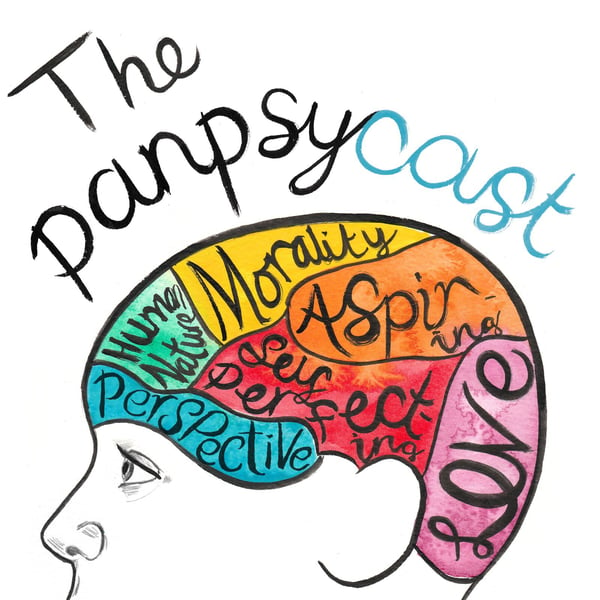Episode 30, Friedrich Nietzsche with Mark Linsenmayer and Gregory Sadler (Part II)
The Panpsycast Philosophy Podcast
Jack Symes | Andrew Horton, Oliver Marley, and Rose de Castellane
4.8 • 604 Ratings
🗓️ 31 December 2017
⏱️ 51 minutes
🧾️ Download transcript
Summary
This episode is proudly supported by New College of the Humanities. To find out more about the college and their philosophy programmes, please visit www.nchlondon.ac.uk/panpsycast. Everything you could need is on www.thepanpsycast.com! Please tweet us your thoughts at www.twitter.com/thepanpsycast. The Partially Examined Life: www.partiallyexaminedlife.com. Gregory B. Sadler on YouTube: www.youtube.com/gbisadler. Born in Rocken, in Prussia in 1844, Nietzsche set out his career in philology but later turned to writing idiosyncratic philosophical treatise and collections of aphorisms. He directed these against the pious dogmas of Christianity and traditional philosophy. He saw both as self-serving veils drawn over the harsher realities of life. He felt we needed not a high moral or theological ideals but a deeply critical form of cultural genealogy that would uncover the reasons why we humans are as we are and how we have come to be this way. He believed that every great philosopher actually a kind of involuntary and unconscious memoir rather than conducting an impersonal search for knowledge. Studying our own moral genealogy cannot help us escape or transcend ourselves but it can enable us to see our illusions more clearly and lead a more vital, assertive existence. There is no God in this picture. The human beings who created God have also killed him. It is now up to us alone. The way to live is not to throw ourselves into faith but into our own lives, conducting them in affirmation of every moment, exactly as it without wishing anything was different and without harbouring resentment for others or our fate (Sarah Bakewell, The Existentialist Cafe, p.19-20). Part I. What is the philosophical underpinning of Nietzsche? (36:40 in Part I), Part II. An Introduction to Nietzsche’s Thought (50:00 in Part I), Part III. What can Nietzsche teach us? (00:05 in Part II), Part IV. Further Analysis and Discussion. (28:15 in Part II).
Transcript
Click on a timestamp to play from that location
| 0:00.0 | Part 3. What can Nietzsche teach us? |
| 0:16.0 | So let's just kind of put this in a bit of a context of today then. |
| 0:19.0 | So what do we think Nietzsche would make of our kind of cultural, I guess, shared values of today? |
| 0:24.2 | You know, self-sacrifice is a good thing. It's a good thing to forgive others if they do bad things to you. Would Nietzsche agree with that? Would he disagree with it? Well, the forgiveness one is interesting. if you are so above it that you have no problem sort of like saying, yeah, that doesn't really bother me. He'd before that. So, you know, what you see Nietzsche, I mean, there's been a lot of talk about this sort of comparison. Nech's, let's call it Superman or whatever, is similar to-souled person. They just don't let this |
| 0:56.4 | little piddly crap get to them. So, you know, you scratch their car. That's just a car, you know. |
| 1:03.3 | Now, there's certain things, certain lines you could cross where then they, they would probably |
| 1:08.3 | go after you. They're not going to forgive that. The ordinary person engaging in forgiveness, |
| 1:13.2 | like, you know, you slept with my wife, right? |
| 1:18.0 | And I'll forgive you and forgive her because I want, you know, |
| 1:22.8 | the relations between us to be okay. |
| 1:26.0 | Nietzsche would say, no, you're, this is clearly just bad stuff on your part. |
| 1:31.9 | You're despicable. |
| 1:33.8 | You're probably not forgiving to begin with. |
| 1:36.6 | You're probably doing it passive-aggressively with what he called Rizantamant. |
| 1:40.9 | If you do actually give that up, what a schmuck you are, you know. |
| 1:47.6 | Yeah. |
| 1:48.3 | So, I mean, some of this would be dependent on how you're doing it, you know. |
| 1:53.1 | Yeah. |
| 1:53.6 | So he wants us to get rid of these moral lords, is this right? |
| 1:56.7 | He wants us to slay the dragon of moral lords and find our new values in this idea of the |
| 2:01.6 | will to power that we've touched on. How would we go about doing this? What does it look like |
| 2:06.2 | in the real world slaying your moral lords? And then how do we find, how do we say yes to life |
... |
Please login to see the full transcript.
Disclaimer: The podcast and artwork embedded on this page are from Jack Symes | Andrew Horton, Oliver Marley, and Rose de Castellane, and are the property of its owner and not affiliated with or endorsed by Tapesearch.
Generated transcripts are the property of Jack Symes | Andrew Horton, Oliver Marley, and Rose de Castellane and are distributed freely under the Fair Use doctrine. Transcripts generated by Tapesearch are not guaranteed to be accurate.
Copyright © Tapesearch 2025.

